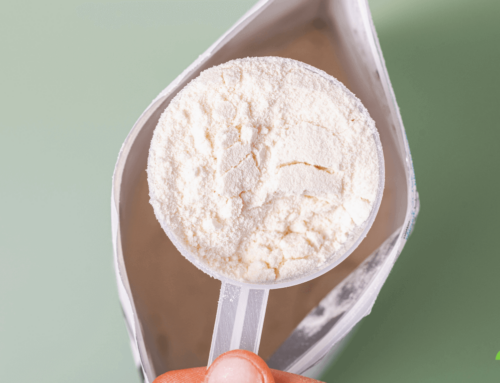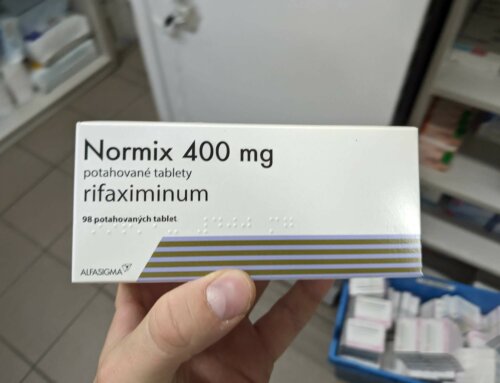I just read a great article called Joint Pain, from the Gut about the connection between two forms of arthritis and changes in our gut microbiota. I have posted on this in the past and the plot continues to thicken.
The article highlights the recent finding that increased levels of a common gut microbe called Prevotella Copri may trigger rheumatoid arthritis. The big question is how.
One possibility involves some direct action of Prevotella copri – molecular mimicry comes to mind. Molecular mimicry is where protein fragments of one organism, often an offending bacteria, resemble protein fragments of another organism, or humans in this discussion. When the bacterial protein fragments come into contact with the immune system by gaining access to the blood or mucus membranes, they illicit an immune response not only to themselves, but also to the host proteins that resemble the bacterial proteins. Simply put, our bodies are not only attacking the intruders, but attacking themselves.
Here is an example of molecular mimicry with a different type of bacteria, Klebsiella pneumonia. Dr. Alan Ebringer worked extensively on ankylosing spondylitis (AS), an arthritis mostly of the spine. Ebringer proposes that Klebsiella pneumonia overgrowth causes AS because its proteins elicit an immune response not only against the Klebsiella proteins themselves, but also against human cartilage proteins that look similar to the Klebsiella proteins at the molecular level (mimicked). It turns out that the surface structure of Klebsiella contains molecules similar to that of a genetic marker for ankylosing spondylitis called HLA-B27.
Of course, the molecular mimicry idea, which underlays the gut connection to all autoimmune disorders, depends on some level of leaky gut and reminds us of how critical intestinal integrity is to our health. Note in the Alan Ebringer paper cited above he talks about the fact that AS is associated with gut inflammation (see references 46-53), considered a prerequisite for leaky gut.
Another interesting idea raised in the article proposes that an overgrowth of Prevotella might “crowd out” other good bacteria that normally are present in higher numbers and help quite the immune response (the opposite of inflammation). In this case, Bacteroides fragilis, one of the most prevalent and important gut microbes, was implicated.
“People with high levels of Prevotella copri also had reduced amounts of the bacteria Bacteroides fragilis, which seems to restrain the immune system.”
There has been a lot of work supporting an immune modulating role for B. fragilis. This common gut bacteria produces a surface sugar called Polysaccharide A (PSA) which can dampen an overactive immune response by repressing inflammatory cytokines, the molecules that get the immune system all revved up.
I still remember working on B. fragilis during a post doctoral fellowship years ago. We actually thought of B. fragilis as a “bad bug” back then due to its propensity for causing opportunistic infections that were difficult to treat with antibiotics. Of course it was less of a problem before surgery and gun shot wounds. Little did we then appreciate it’s larger role in digestive and immune health.
The article also mentions another brand new study linking a different form of arthritis called psoriatic arthritis (thus named because one third of people with psoriasis get it) to a decline in the overall diversity of gut microbes. Diversity also declined in participants with psoriasis. But those with psoriatic arthritis suffered a specific reduction in Akkermansia, Ruminococcus, and Pseudobutyrivibrio, as well as Coprococcus.
2015 is off to a great start connecting health issues to clear changes in gut microbiota. The next step is understanding how it all happens. I wouldn’t be a bit surprised if poor diet, the prevalent use of antibiotics and preservatives as well as over sanitization of everything we touch and eat end up sharing the blame. Balancing our gut microbe population is the main goal of the Fast Tract Diet explained in the Fast Tract Digestion book series. Ready to start the Fast Tract Diet? Try the Fast Tract Diet App.







Dr. Robillard,
I’ve read your IBS book and have also gifted it to two more people. I tested positive for SIBO four years ago. Still struggling with it. Fast Tract Diet is helping… but just got back a test from Genova labs showing which bacteria are overgrown. Do you know of a practitioner/expert who can address specific overgrowth of bacteria based on “species”? I love the diet but my thought is that I need rebalancing in addition to symptom abatement. Would love it if you could address this “species” by “species” microbe issue and optimum microbiota in a future book. It’s time for something like this. Thank you!